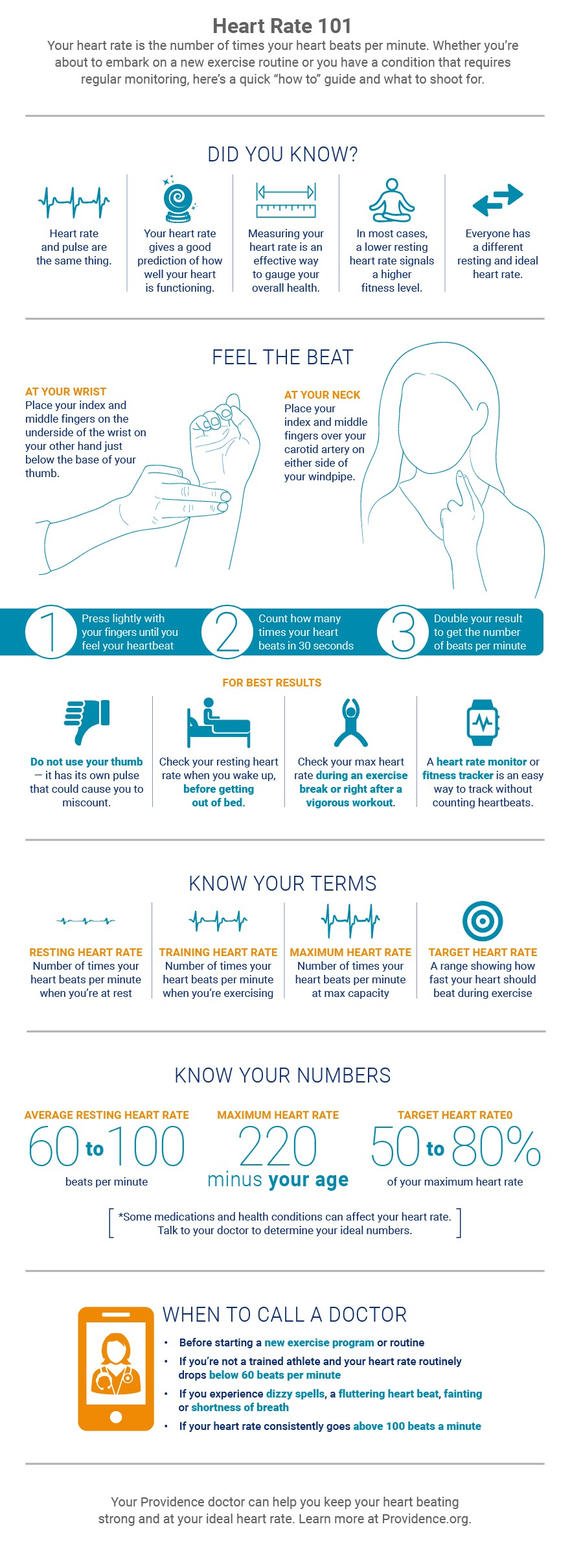Your heart rate is a little like the story of Goldilocks: the ideal number is not too fast and not too slow. It’s just right.
Heart rate, or pulse, is the number of times you heart beats in a minute. If your heart rate is too low it can make you feel dizzy, tired, and short of breath. If it’s too high (in short bursts or over an extended period of time) you could be risking high blood pressure, high cholesterol, and an increased chance of heart disease. When your heart rate is “just right” it’s a good indication that your heart is functioning as it should.
Here’s an overview of the basics to help you understand your heart rate and what that number really means.

Find a doctor
If you need advice on how to monitor your heart rate or what's ideal for you, talk to your doctor. You can find a Providence cardiologist using our provider directory.
Related Resources
Do you really need to take 10,000 steps a day to keep your heart healthy?
Should I take aspirin to prevent heart disease?
This information is not intended as a substitute for professional medical care. Always follow your healthcare professional's instructions.
About the Author
More Content by Providence Heart & Vascular Team

